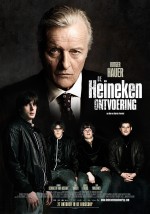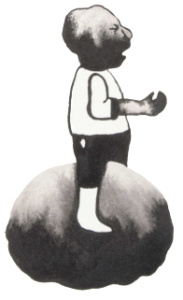 On December 1, 2011 the Amsterdam Court rendered its judgment in the second summary proceedings about the Dutch movie ‘De Heineken Ontvoering’ (The Heineken Kidnapping), starring Rutger Hauer. These proceedings were instituted against producer IDTV by two men who were involved in the kidnapping of the beer mogul, Frans Meijer and Jan Boellaard. We reported in the October 2011 newsletter on the first summary proceedings, which were instituted by Willem Holleeder (also one of the kidnappers) against the producer. In that case, Holleeder’s claims were denied by the court. This did not withhold Meijer and Boellaard from starting separate legal proceedings targeting the movie.
On December 1, 2011 the Amsterdam Court rendered its judgment in the second summary proceedings about the Dutch movie ‘De Heineken Ontvoering’ (The Heineken Kidnapping), starring Rutger Hauer. These proceedings were instituted against producer IDTV by two men who were involved in the kidnapping of the beer mogul, Frans Meijer and Jan Boellaard. We reported in the October 2011 newsletter on the first summary proceedings, which were instituted by Willem Holleeder (also one of the kidnappers) against the producer. In that case, Holleeder’s claims were denied by the court. This did not withhold Meijer and Boellaard from starting separate legal proceedings targeting the movie.
The movie tells the story of the 1983 kidnapping of Alfred Heineken and his driver Ab Doderer. It does not claim to be a documentary: it is based on facts, but also contains a lot of fictitious elements, including fictitious characters and storylines. The two kidnappers complained that their roles are played by actors who look like them and dress like them, and their real names are used (In the previous case, the character who resembled Holleeder was given a different name). As a result, they are fully identifiable and – according to the kidnappers – it will not be clear to the viewer which elements of the movie are fact, and which fiction. The movie is preceded by a general disclaimer:
This movie is a cinematographic interpretation of the 1983 kidnapping of Alfred Heineken and does not aim to document what actually happened. Facts are mixed with fiction. The characters that appear in this movie are also to a large extent based on fiction.
Meijer and Boellaard were not satisfied with this disclaimer, as it does not indicate exactly which scenes are factually correct and which are fictitious. Their complaints were especially aimed at three scenes in which violence and weapons are used. In these scenes, respectively, one of the kidnappers shoots at a taxi, in other scenes weapons are used, and in a third scene the suggestion is raised that Meijer hit his girlfriend and gave her a black eye.
Meijer and Boellaard claimed a more extensive and more specific disclaimer, which mentions that these scenes are fabrications. Also, they wanted this disclaimer published over the width and length of a full page in a number of newspapers.
The Court began its judgment by setting out the legal framework.
Allowance of the claim would entail a restriction of the right of freedom of expression to which IDTV is entitled, as set out in Article 10 of the ECHR. (…) In this case a lot of weight has to be attached to the fact that a maker of a film about a historical event is free – in view of the freedom of artistic expression – to use fictitious elements. (…) However, the freedom of the filmmaker may be limited if there are compelling interests of those involved in this historical event, especially the interest that they do not wish to be wrongly associated with fictitious elements that may constitute damage or damage to their reputation. Therefore, the question that has to be answered is whether there are such interests of Boellaard and Meijer, and whether in this case these interests outweigh the freedom of expression of IDTV.
The Court then points out the ‘chilling effect’ if the parties involved would get too much grip on the movie version of a historical event.
In this respect, the Court in summary proceedings is first and foremost of the opinion that, as also brought forward by IDTV, in this case there is no question of one single truth. The film is about an event which happened almost 30 years ago, in which various people were involved at various moments. Therefore, there is no clear-cut separation between fact and fiction, as Meijer and Boellaard claim. (…) Moreover, this [the detailed disclaimer –ed.] could lead to a “chilling effect”, in the sense that various persons involved will claim their “own” disclaimer. This way the persons involved in a historical event could get too much grip on the making and composing of motion pictures”
Next, the Court discusses the three movie scenes which Meijer and Boellaard specifically pointed out as being fictitious and harmful. With respect to all three scenes, the Court in summary proceedings is of the opinion that fictitious elements do not justify granting the claims.
Again, here it can be said, in the light of all facts and circumstances, that the fictitious elements are not so far removed from reality that the interests of Boellaard and Meijer are being affected in a serious manner.
With regard to the black eye the Court finds that this fictitious element, while very serious, is not damaging to Meijer’s reputation:
“(…) given the other violence in the film for which the kidnappers are held responsible and against which Meijer has not objected, [the element is] not so extraordinary that it sheds a completely different light on the person of Frans. The fictitious element does not further affect his reputation.”
The Court does consider that the disclaimer is on the screen for a fairly short time, which may mean that the average public does not immediately get the message. This is, however, in itself no reason to allow the claims. The public is, after all, aware that it is watching a motion picture and not a documentary. Furthermore, it is of importance that there has been extensive discussion in Dutch media about the mix of fact and fiction in the movie. IDTV also promised that the disclaimer on the DVD will be on the screen for a longer period, so that for the future it is sufficiently guaranteed that the public will take cognizance of it. An order to also show the disclaimer in the cinema version for a longer time would be disproportionate in view of the costs and the difficult practical feasibility thereof. All claims of the kidnappers are denied.
Movie producer IDTV was represented by Jens van den Brink and Tessel Peijnenburg.

